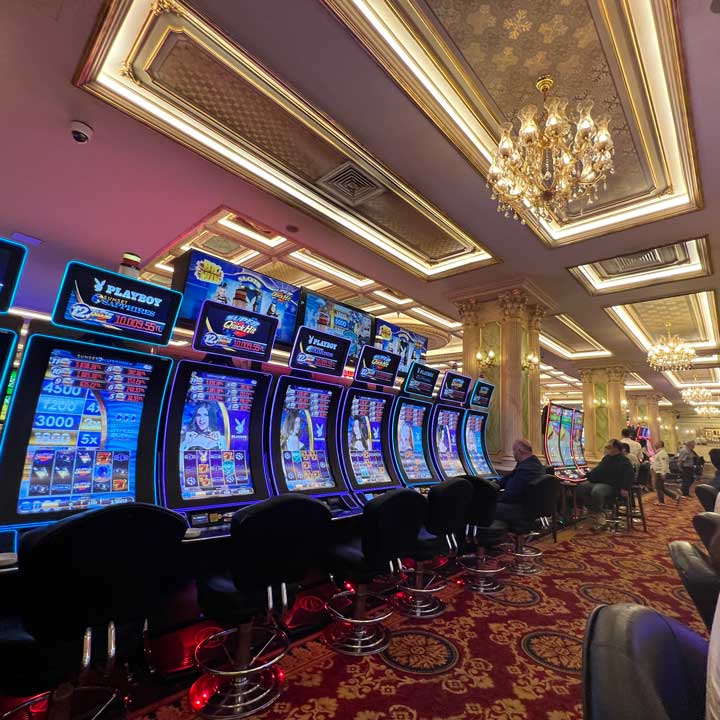
Casino entertainment have long been a engaging source of amusement, drawing countless of players from diverse cultures around the globe. From the lively casinos of Las Vegas to the busy gambling halls of the Cotai Strip, these games serve as a bridge that unites people across various backgrounds. The allure of chance, strategy, and gambling entices not only those looking to gamble for profit but also those seeking a feeling of belonging.
The significance of casino games extends significantly past the gaming floor. They often reflect the values and principles of the cultures in which they prosper. Games such as Texas hold ’em, blackjack, and the wheel game have woven themselves into the mosaic of mainstream culture, influencing multiple fields from films to clothing. As we explore this intriguing intersection of chance and culture, we can gain insights into how casino games shape and are affected by the environment surrounding us.
Historical Progression of Casino Games
The roots of gaming activities can be traced back to historical cultures, where gambling in different forms was extensively engaged in. In China, around two thousand three hundred years before Christ, a form of gambling known as Keno was well-known, while in historic the Roman Empire, soldiers would often wager on the outcomes of their games. The idea of using randomness for entertainment and income developed over the ages, leading to the establishment of more formal games. By the final Middle Ages, gambling houses started to surface in Europe, especially in Italy, which brought forth early forms of well-liked activities still practiced today.
As betting expanded popularity in Europe, the 17th and 18th centuries saw the appearance of gambling establishments as dedicated locations for gambling. The earliest official casino, the Ridotto, was established in the city of Venice in sixteen thirty-eight, providing activities like the game of Baccarat and Faro games. This era marked a crucial turning point, as casinos began to attract not just the high society but also the growing middle-income class. The sophistication of activities evolved, leading to the development of new guidelines and variations that improved the play experience.
In the 19th century, the industrial age and transformations in social norms also altered the terrain of gambling games. The launch of roulette and contemporary gaming machines attracted a broader crowd, and gambling establishments became seen as legitimate forms of recreation. This time witnessed the worldwide proliferation of gambling, as gambling houses extended from Europe to the Americas, culminating in the development of the iconic Strip of Las Vegas in the 20th century. The progress of gaming games has continued into the present day, including new technologies and digital services, allowing them accessible to a global market.
# Cultural Significance in Various Communities
Casino activities have deep-rooted cultural significance across many societies across the planet. Places like Las Vegas, the very essence of the city is woven around gaming venues, where gaming is not just a pastime but a key aspect of leisure and community life. The vivid lights and dynamic atmosphere attract a vast audience, showcasing how games of chance can shape local economies and cultural uniqueness. This environment transforms the notion of relaxation into an engaging encounter that influences apparel, sound, and even cinema.
In contrast, some communities view gambling with more caution, seeing it through the lens of ethical considerations and customs. For example, in numerous Eastern cultures, games like Mahjongg and Pai Gow Gambling are steeped in history and have significant social implications. These games are often played during get-togethers and celebrations, fostering collective connections and reinforcing family ties. The act of playing these games goes beyond mere amusement, reflecting values such as honoring elders and the significance of communal fun.
At the same time, in European countries such as Monaco and the Italian Peninsula, casino games serve as symbols of opulence and refinement. casino non AAMS sicuri The refined atmosphere of these establishments attracts both tourists and locals, reinforcing a sense of distinction and elitism. The art of the game of poker and the tactical components of games like the game of baccarat are celebrated, molding social dynamics and creating an allure that fascinates a varied audience. This highlights how gambling can simultaneously echo and influence societal views towards hazard, benefit, and community interaction.
Economic Impact and Tourism
Gambling activities play a significant role in the financial context of many regions, particularly those that rely heavily on tourism. The revenue generated from gambling establishments fuels local economies, creating jobs not only within the casinos themselves but also in related sectors such as hotel management, dining, and recreation. This surge of tourists, drawn by the allure of gambling and the overall gaming environment, stimulates expenditure across multiple businesses, contributing to the economic health of the region.
The presence of casinos often leads to the development of facilities, including lodging, transportation systems, and recreational facilities. These improvements are essential in enhancing the overall visitor satisfaction, making destinations more appealing to tourists. Additionally, many casinos invest in local communities through sponsorship of events and philanthropic initiatives, further embedding themselves into the social fabric of the region. Such investment not only supports economic growth but also cultivates a positive reputation of the gambling sector.
Furthermore, the global popularity of casino games drives tourism competition, with regions vying to attract gamblers from around the world. Iconic locations like Las Vegas and Macau have become identifiable with casino culture, drawing millions each year. This competitive edge encourages creativity and variety within the gambling sector, influencing developments in entertainment and accommodation that extend beyond their borders. The ripple effects of this tourism extend far, impacting local financial health and cultural interactions on a global scale.
